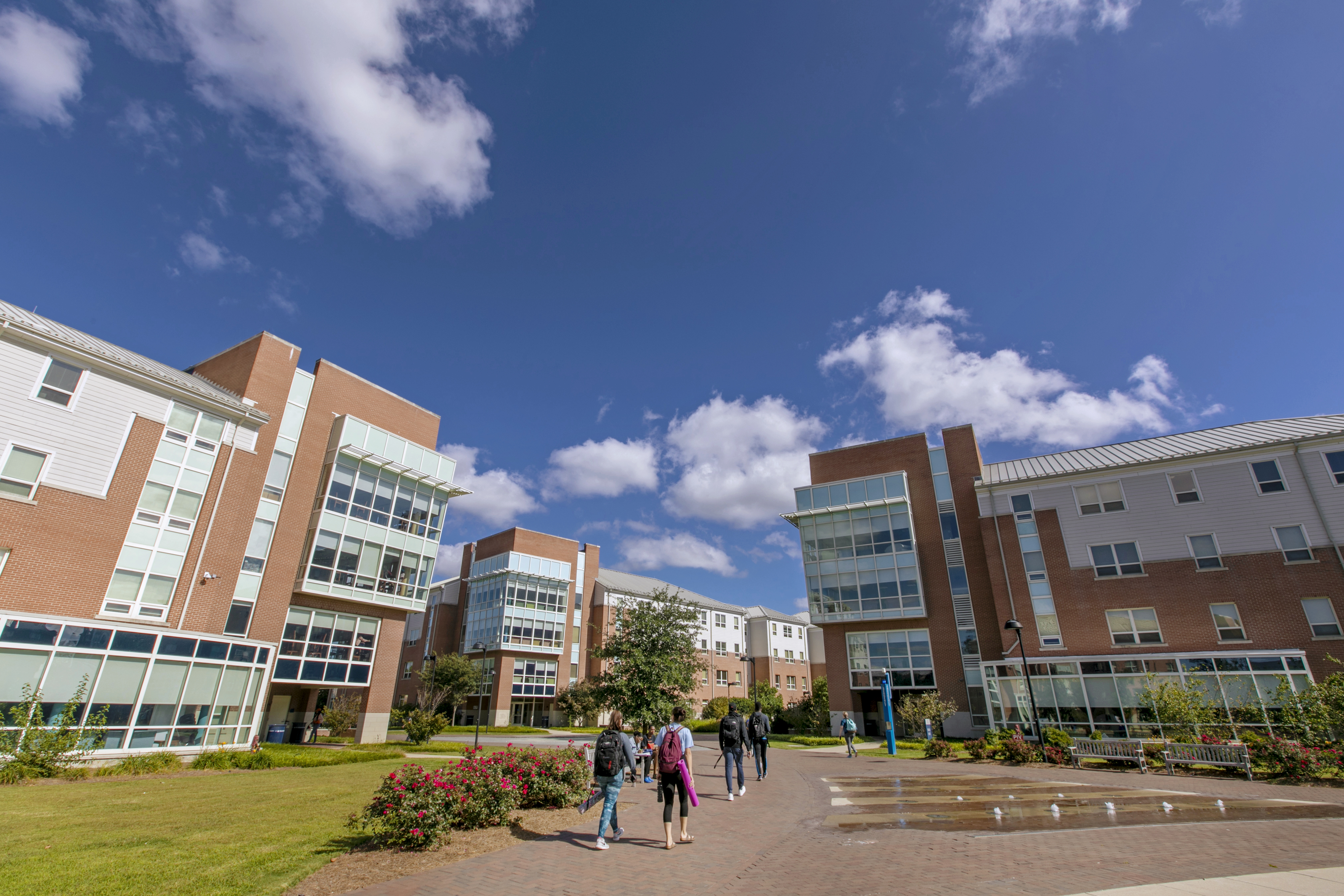What & Where to Recycle
During normal operations, the Recycling Department accepts a variety of items for recycling.
Exception: During special events such as basketball season or student move-out, we also accept several items that are not allowed on this list, such as plastic stadium cups and wood.
Acceptable Materials
Cardboard
By recycling cardboard, we can save 25% of the energy used to make new cardboard. Approximately 50% of all corrugated cardboard in the U.S. is recycle -- the highest percentage of any paper product.
Acceptable Materials
- Corrugated cardboard (Corrugated = holes in side)
Contaminants
- Chipboard (cereal boxes, six pack containers)
- Pizza boxes or any cardboard contaminated with grease spots or food
- Waxed cardboard
- Styrofoam
Newsprint
If every American recycled just one-tenth of their newspapers, we would save about 25,000,000 trees a year. Recycling a single run of the Sunday New York Times would save 75,000 trees. Magazines, catalogs and phonebooks may also be placed in recycling containers.
Acceptable Materials
- Newspaper with glossy inserts
- Phonebooks/Booklets with newsprint
- Magazines/Catalogs
- Glossy catalogs
- Glossy magazines
Contaminants
- String
- Very thick or hardboard catalogs
Cardboard
By recycling cardboard, we can save 25% of the energy used to make new cardboard. Approximately 50% of all corrugated cardboard in the U.S. is recycle -- the highest percentage of any paper product.
Acceptable Materials
- Corrugated cardboard (Corrugated = holes in side)
Contaminants
- Chipboard (cereal boxes, six pack containers)
- Pizza boxes or any cardboard contaminated with grease spots or food
- Waxed cardboard
- Styrofoam
Aluminum
Every three months - Americans throw away enough aluminum to rebuild every plane in our commercial air fleet. Using recycled aluminum instead of raw material reduces air pollution by 95%, water pollution by 97% and energy use by 95%. Recycling one aluminum can saves enough energy to run a TV for three hours -- or the equivalent of a half a gallon of gasoline.
Acceptable Materials
- Aluminum beverage cans
- Aluminum foil (rinsed)
Contaminants
- Any material contaminated with food
Steel/Bi-metal Cans
In the past, tin was often used to prevent corrosion in food cans, but today it is rarely called for in the manufacturing process. Steel is infinitely recyclable. Recycled steel is identical to steel that is produced from virgin ore.
Acceptable Materials
- Food cans (rinsed)
Contaminants
- Pet food cans
- Tuna cans
- Non-rinsed food cans
Plastic
Annually, the U.S. produces the equivalent of 10 pounds of plastic for every person on Earth. Americans use 2,500,000 plastic bottles every hour! Most of them are thrown away! Plastic is NOT biodegradable, meaning that once in the landfill, it will stay there forever. Recoverable Resources accepts #1 PETE and #2 HDPE plastics. These numbers can be found on the bottoms of plastic containers.
Acceptable Materials
- Plastic drink bottles (#1 plastic)
- Plastic milk containers (#2 plastic)
- The mouth of the container must be smaller than the body
Contaminants
- Plastic from food sources, cleaning
- Solutions, industrial products
- Food containers such as yogurt, peanut butter etc.
Electronic Waste
Please see E-Waste Recycling for information on how to recycle electronic waste and batteries. E-Waste Recycling►
Academics
- Alfriend Chemistry
- Art Studio
- Batten Arts & Letters
- Center for Quantitative Fisheries Ecology
- Constant Hall
- Diehn Fine & Performing Arts
- Dragas Hall
- Education Building
- Engineering & Computational Sciences
- Teletechnet / Gornto
- Health Sciences
- Kaplan Orchid Conservatory
- Kaufman Hall
- Lions Child Study Center
- Mills Godwin Building
- Oceanography & Physics Building
- Peri Nuclear Physics
- Perry Library
- Pretlow Planetarium
- Visual Arts Building
Administrative
- Facilities Management
- Human Resources 1, 2 &3
- Innovation Research Park 1 & 2
- Koch Hall
- Kornblau Alumni Center
- Navy ROTC
- Rollins Hall
- Spong Hall
- University Auditor
Athletics
- Athletic Administration
- Powhatan Sports Complex
- Sailing Center
- Bud Methany Baseball Facility
- S.B. Ballard Stadium
- Soccer Stadium
- Folkes-Stevens Tennis Center
- Student Recreation Center
- Wrestling Facility
Auxiliary
- Baron & Ellin Gordon Art Gallery
- Child Care Center
- Stables Theater
- Ted Constant Convocation Center
- University Bookstore
- Webb University Center
- Goode Theater
- James A. Hixon
- Barry Arts Building
Residence
- Dominion House
- England House
- France House
- Gresham Hall
- Greham Hall Annex
- Ireland House
- Monarch / ODU Inn
- Nusbaum Apartments
- Powhatan Apartments 1 & 2
- Rogers Hall
- Rogers Hall Annex
- Scotland House
- University Village Apartments
- VPBW Scholarship House
- Virginia House
- Whitehurst Hall


